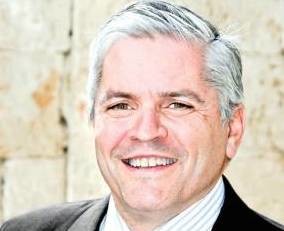Jerusalem, the center of the world
I was at a wedding in LA when the family of the groom decided to daven mincha. Someone immediately asked, “Which way is east?” I was struck by the fact that in Israel, no one asks “Which way is east?” It’s “Which way is Jerusalem?”
(My first time in Lebanon we prayed facing south, a strange feeling for someone who grew up in New York.)
It is powerful to realize that any Jew, praying anywhere in the world, faces Israel. Every Jew in Israel faces Jerusalem. Every Jew in Jerusalem faces the Old City. Every Jew in the Old City faces the Temple Mount, specifically the place where the Temple once stood. Why is the Temple so important?
The forerunner of the Beit HaMikdash was the Mishkan, which accompanied the Jews in the desert for nearly 40 years and was the center of spiritual life for hundreds of years after that. Throughout the reign of Yehoshua, the Judges, Shaul and David, there was no Temple, only a Mishkan.
The Mishkan is a focal point of discussion throughout Shemot, Vayikra and Bamidbar. But interestingly, in the book of Devarim it is not mentioned even once!
The Torah does describe in Devarim the idea of a place chosen by G-d, and although not named, the phrase “hamakom asher yivchar Hashem Elokecha,” the place chosen by G-d, occurs no less than 16 times in this week’s parasha of Re’eh alone.
But if is the Mishkan would remain the spiritual center of the Jewish people, why is it no longer mentioned?
Why is the Torah so focused on a place that will not even be chosen until the end of David’s reign?
There is an obvious difference between the Mishkan and the Beit HaMikdash: the Mishkan was always a temporary structure, whereas the Beit HaMikdash was meant to be permanent.
In fact, ideally the Mishkan would never have been built: if not for the Golden Calf, the Jews would have left Sinai straight for Israel. Once it became clear the Jews would be spending longer than anticipated in the desert, they needed a spiritual anchor, a response to the vacuum that had caused the sin in the first place.
So G-d enjoined them to build a Mishkan.
Why did the ideal include a permanent structure in Israel? Because nothing lasts forever. We all need a way to recharge our spiritual batteries. So three times a year, every Jew took a break from the grind of life and journeyed to a place where the presence of Hashem could be more intensely experienced.
Interestingly, in Divrei Hayamim, when G-d agrees that the people are ready for a permanent Beit HaMikdash, the mountain He designates is called Mount Moriah, the place of Akedat Yitzchak.
Rav Soleveitchik suggests that there are two mountains in Judaism: Sinai and Moriah. Mount Sinai was where G-d gave to us; it was at Sinai that we received the ultimate gift: the Torah. Mount Moriah, however, is where we were willing to give everything up for G-d. It was there that Avraham was willing to offer up his son, whom he loved more than anything in the world.
The Temple was built in the place that represents our willingness to give, to be partners with G-d in making a better world.
Devarim, especially Re’eh, see no mention of the Mikdash because they are all about the Jewish people readying themselves to enter Israel.
Moshe enjoins the people to create a society that will be a role model for the world. It’s hard to build an ethical society next door to people who commit murder, adultery and robbery, or have no ethical courts. They need a spiritual center to foster Jewish unity.
The book of Devarim makes clear that the goal is a society and land with G-d at its center, on a permanent basis. The Mishkan is not the focus here. The Beit HaMikdash is.
We are living in incredible times. Physically, the Jewish people are finally returning home after 2,000 years of wandering. The largest Jewish community in the world is in Israel. Soon, the majority of the Jews in the world will be there. We are witnessing a worldwide debate on Jerusalem’s status as the capital, the center of the Jewish people.
This is not an accident. At stake is the question of whether we are a people chosen by G-d, whose prayers face a place and a mission chosen by Him.
What lies at the center of our lives? What direction do we face? Is it a spiritual goal?
Do we have a place to retreat to, and experiences that will allow us to change and to experience G-d and deeper meaning in our lives?
And can we make such moments last?
Shabbat shalom from Jerusalem.

 44.0°,
Mostly Cloudy
44.0°,
Mostly Cloudy 




